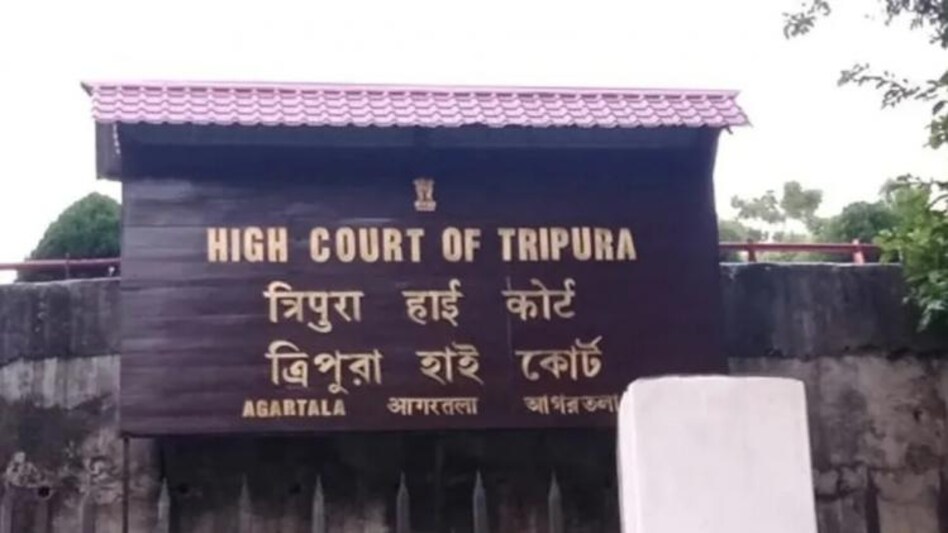@JUDGMENTTAG-ORDER
Mr. Vijay Bishnoi, J. - This criminal misc. petition under Section 482 Cr.P.C. has been filed on behalf of the petitioner with a prayer for quashing the FIR No. 51/2016 of Police Station Sri Karanpur, Distt. Sri Ganganagar filed against the petitioner by the respondent No. 2 for the offences punishable under Sections 420, 406, 120-B and 506 IPC.
2. The petitioner has made the A.C.J.M., Sri Karanpur, Distt. Sri Ganganagar as party respondent No.3 to this petition and submitted that the respondent No.3 had committed contempt by disobeying the order of the Hon''ble Supreme Court rendered in the case of Priyanka Srivastava (Mrs.) and Anr. v. State of U.P. and ors., reported in 2015 (3) RLW 2404 (SC) and, therefore, contempt notice may kindly be issued to the respondent No. 3 for committing deliberate contempt of court for disobeying the order of the Hon''ble Supreme Court.
3. Learned counsel for the petitioner has argued that from bare reading of the complaint filed by the respondent No. 2, no case for commission of offence under Sections 420, 406, 120-B and 506 IPC is made out against the petitioner, however, the Magistrate without application of mind and in violation of the directions issued by the Hon''ble Supreme Court in Priyanka Srivastava''s case (supra) had straightaway sent the complaint filed by the respondent No.2 for investigation under Section 156(3) Cr.P.C., which resulted into registration of the impugned FIR. Learned counsel for the petitioner has, therefore, prayed that the impugned FIR may kindly be quashed and notice of contempt be issued to the respondent No.3 for disobeying the order of the Hon''ble Supreme Court.
4. Heard learned counsel for the petitioner and perused the impugned FIR.
5. In the impugned FIR, the complainant has alleged that the petitioner is known to her and both of them are having familiar relations. It is alleged that about a year back, the petitioner came to her house and stated that her husband is suffering from heart ailment and for that, costly medicines are required, therefore, she had asked for borrowing some money and promised to repay the same after 2 to 3 months. It is mentioned that the complainant has given Rs. 20,000/- to the petitioner on her inducement. It is alleged that after passing of 2 to 3 months, the money borrowed by the petitioner was not returned to the complainant and when the complainant demanded for the said money, the petitioner refused to repay the same. It is also alleged that the petitioner had concocted a false story about ailment of her husband with the purpose to cheat the complainant.
6. After taking into consideration the allegations levelled in the impugned FIR, this Court is of the opinion that the allegations contained in the impugned FIR are to the effect that the petitioner had fraudulently or dishonestly induced the complainant to deliver money by concocting a false story of ailment of her husband and, as such, grabbed the money of the complainant by deceitful means. It is also alleged in the FIR that the petitioner had not returned the money despite promise and, as such, has dishonestly misappropriated it. The allegations contained in the impugned FIR do constitute offence of cheating and criminal breach of trust. Hence, it cannot be said that the allegations contained in the impugned FIR do not constitute any offence.
7. So far as the prayer of the petitioner of issuing contempt notice to the respondent No. 3 on account of violation of the directions issued by the Hon''ble Supreme Court in Priyanka Srivastava''s case (supra) is concerned, this Court has found that the Hon''ble Supreme Court in the aforesaid case has observed as under :
"27. In our considered opinion, a stage has come in this country where Section 156(3) Cr.P.C. applications are to be supported by an affidavit duly sworn by the applicant who seeks the invocation of the jurisdiction of the Magistrate. That apart, in an appropriate case, the learned Magistrate would be well advised to verify the truth and also can verify the veracity of the allegations. This affidavit can make the applicant more responsible. We are compelled to say so as such kind of applications are being filed in a routine manner without taking any responsibility whatsoever only to harass certain persons. That apart, it becomes more disturbing and alarming when one tries to pick up people who are passing orders under a statutory provision which can be challenged under the framework of said Act or under Article 226 of the Constitution of India. But it cannot be done to take undue advantage in a criminal court as if somebody is determined to settle the scores. We have already indicated that there has to be prior applications under Section 154(1) and 154 (3) while filing a petition under Section 156(3). Both the aspects should be clearly spelt out in the application and necessary documents to that effect shall be filed. The warrant for giving a direction that an the application under Section 156(3) be supported by an affidavit so that the person making the application should be conscious and also endeavour to see that no false affidavit is made. It is because once an affidavit is found to be false, he will be liable for prosecution in accordance with law. This will deter him to casually invoke the authority of the Magistrate under Section 156(3). That apart, we have already stated that the veracity of the same can also be verified by the learned Magistrate, regard being had to the nature of allegations of the case. We are compelled to say so as a number of cases pertaining to fiscal sphere, matrimonial dispute/family disputes, commercial offences, medical negligence cases, corruption cases and the cases where there is abnormal delay/laches in initiating criminal prosecution, as are illustrated in Lalita Kumari are being filed. That apart, the learned Magistrate would also be aware of the delay in lodging of the FIR."
8. However, the petitioner in this criminal misc. petition has no-where averred that the complaint filed by the complainant before the respondent No.3 was not supported by an affidavit and the respondent No. 3 has forwarded the complaint of the petitioner for investigation under Section 156(3) Cr.P.C. in the absence of it. When the allegations contained in the impugned FIR do constitute offence, this Court is of the opinion that the Magistrate has not committed any illegality in forwarding the complaint for investigation to the I.O.
9. In view of the above facts and circumstances, I do not find any merit in this criminal misc. petition and the same is hereby dismissed.
10. Stay petition also stands dismissed.

